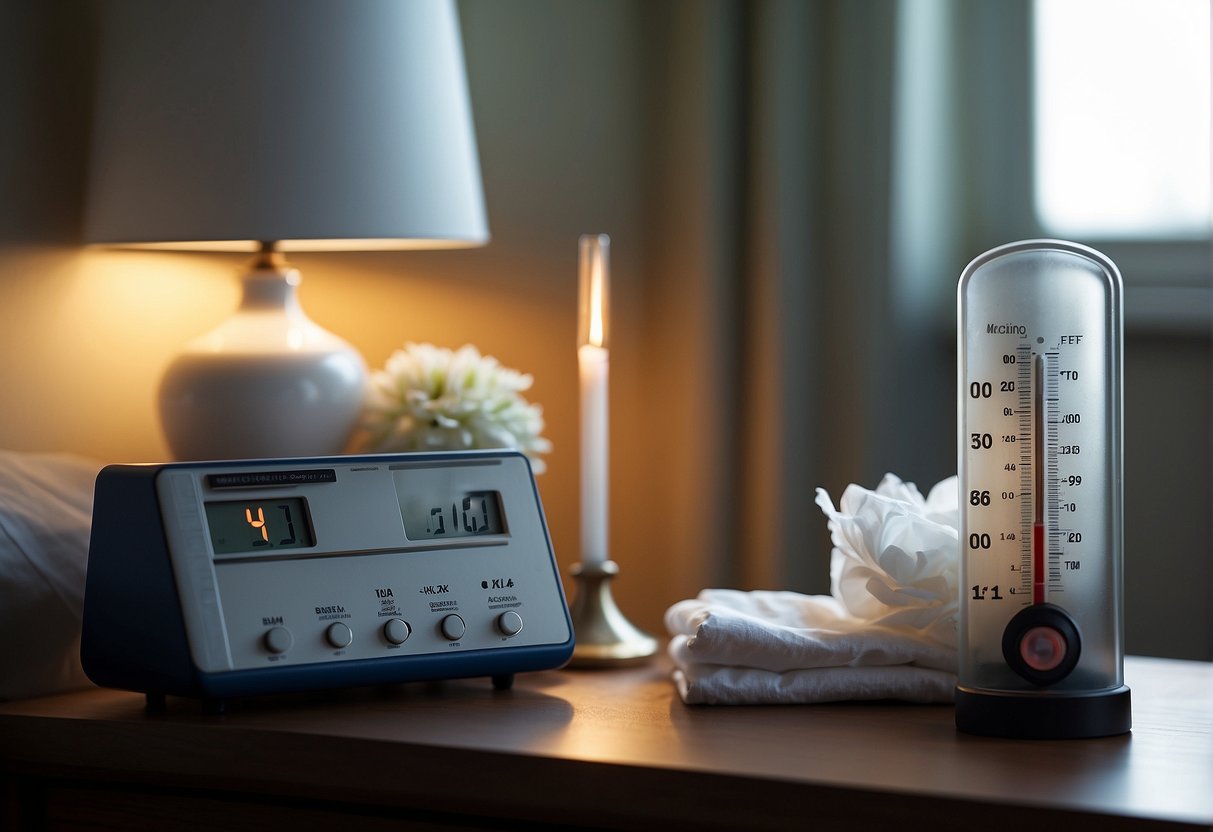📦 FREE Shipping
How Many Calories Do You Burn When You Are Sick 2024? Surprising Facts

Feeling under the weather can impact your body in many ways, including your calorie expenditure. Find out “How Many Calories Do You Burn When You Are Sick?” with insights that may change how you view your sick days.
How Many Calories Do You Burn When You Are Sick?
Calorie Burn and Basal Metabolic Rate
Your basal metabolic rate (BMR) is what your body requires to maintain vital functions at rest. Think of it as the baseline amount of calories you burn without adding any extra activities. Now, when you’re sick, particularly with a fever, your BMR can skyrocket.
- Fever Factor: A raised body temperature increases BMR.
- Immune Response: Battling an infection takes energy; your immune system’s hard work ups your calorie usage.
Note: The degree of BMR increase varies per individual, depending on weight and body composition factors.
What is the Energy Expenditure While Sick?
Your body is a powerhouse, converting calories into the fuel necessary for every action, even when ill. Here’s the scoop on how energy expenditure shifts:
- Metabolism Kick: Fighting diseases can give your metabolism a temporary boost.
- Calories Burned: You might burn more calories during illness, largely due to the energy your immune system spends and the potential increase in body temperature.
Remember, energy needs can differ based on the severity of your sickness. A mild cold might not have the same effect as a high fever, so the caloric impact fluctuates with the intensity of your illness.
Nutritional Considerations During Sickness

Optimal Foods and Fluids for Recovery
Protein-rich foods are your allies in illness, as they’re essential for repairing tissues and supporting the immune system. Consider these options:
- Chicken soup: Not only is it comforting, but it’s also packed with protein and nutrients.
- Lean meats, eggs, and legumes: These are excellent sources of protein and help in tissue repair.
- Fruits and honey: Full of vitamins and antioxidants, foods like oranges and honey can calm a sore throat and boost immune health.
It’s not always about eating more; it’s about eating smart. In times of illness, your appetite may dwindle, but focusing on nutrient-dense, easily digestible meals will serve you well. Small, frequent meals are easier on your stomach and can provide a steady energy flow.
Importance of Hydration and Nutrition
Staying hydrated is non-negotiable when you’re sick. Hydration helps to keep your throat and airways clear and supports overall bodily functions:
- Water: Always the gold standard – aim for at least 8 cups daily.
- Herbal teas: Soothing, warm, and can be enhanced with a spoonful of honey.
- Broth-based soups: Double-duty hydration and nutrients.
Don’t wait to feel thirsty; you’re already dehydrating by then. Sip fluids throughout the day, and if you prefer flavor, add a splash of 100% fruit juice to your water for an extra nutrient kick. If you’ve heard the sayings “feed a cold, starve a fever,” remember that they’re catchy but not clinically advised—an overall healthy diet matters most.
Regarding nutrition, your body may require extra calories for energy to fight the illness. How about:
- Protein-rich snacks: Think cheese, yogurt, or a hard-boiled egg.
- Milk: A good vitamin D and calcium source, it can be comforting, especially if warm.
Influence of Physical and Lifestyle Factors

Effects of Age, Sex, and Physical Activity
Age: As you age, your metabolism typically slows down, which means your body burns fewer calories at rest. However, this can slightly increase when you fall ill, as your system works hard to fight off the infection.
Sex: Your sex plays a significant role, too. Generally, men have higher muscle mass than women, resulting in a higher basal metabolic rate (BMR). So, men may burn more calories than women while sick, just as they do when healthy.
Physical Activity: Despite illness potentially increasing your BMR, being bedridden or less active due to sickness will likely decrease the total calories you burn throughout the day. It’s the energy cost of activities, most of which aren’t being performed while sick, that typically constitutes most of the calorie burn over and above your BMR.
Lifestyle Influences on Recovery
Diet and Calorie Intake: When you’re sick, you might not have the same appetite, leading to a lower calorie intake. But it’s essential to try to eat well to provide your body the nutrients it needs for the battle against illness.
Sleep: Don’t underestimate the power of sleep! A good rest can support your immune system and might influence how quickly you recover from an illness. Your calorie expenditure might be marginally higher when you’re sick and sleeping as your body repairs itself.
Stress: Stress can either suppress your appetite or lead to stress-eating, affecting your calorie balance. In addition, chronic stress can directly impact your metabolic rate, potentially influencing weight changes during sickness.
FAQ:
Do you burn calories when you are sick?
Yes, you burn calories when sick as your body works harder to fight the illness and maintain homeostasis.
How many calories do you burn while being cold?
Being cold can increase calorie burn because your body works harder to maintain its core temperature, which might result in burning a few extra calories.
How many calories do you burn when you have fever?
When you have a fever, your body’s metabolic rate increases, potentially burning more calories—about 5% more for every degree of temperature above normal.
Do you burn calories coughing?
Yes, you do burn calories coughing as it involves muscular activity and an increased effort by the respiratory system.
If this article about the question: “How Many Calories Do You Burn When You Are Sick” helped you, don’t forget to leave us a comment down below about what you think of the article.

